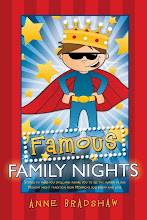Saturday, November 21, 2009
G.I.V.E. -- Writing Tips All Wrapped Up
Thanksgiving and Christmas, are my favorite holidays. One is about gratitude. The other is about giving--two very good things. With “Turkey Day” now only days away, I’ve started transitioning from what I’m grateful for to what I’m going to give. So, with thoughts of “giving” on my mind, I've created some writing tips, all wrapped up in the word GIVE.
• G is for GIVE yourself permission to be emotional. When you sit down to write, let your emotions flow. Don’t stop writing until you’ve given your all. You can edit and fine-tune your transitions later. Real emotion can’t be forced. If you hold back on the giving in the beginning, you might have a hard time trying to fake it later. Don’t miss out on the crowning emotion and raw energy that will make your piece stand out. Emote! Give way to your emotions.
• I is for IMAGINE the possibilities. In the beginning, it’s important to imagine all that is possible. This is about brainstorming. Don’t stop to evaluate whether or not your thoughts are good enough to keep. Just keep writing down ideas. Evaluate later. One writing coach suggests the following: “When you can't think of another word, wait a while. Often the most powerful idea will surface after you have cleared all the less valuable ideas out of the way.”
• V is for VERBALIZING your thoughts clearly using strong action words, correct spelling, punctuation, and grammar. A sloppy presentation can cloud clever writing. It’s imperative to understand and apply correct grammar rules and proper punctuation. Pay attention to spelling. Even computer spellcheckers don’t catch everything. It’s worth the extra effort to check for accuracy. Verbalize with clarity using strong verbs and nouns. Personally, I’m working on this one. One idea is to circle all of the action verbs on your page. Come up with at least one alternative word and choose which one is best.
• E is for EDIT after everything else. This is tough for me. I write a paragraph and immediately I want to fix it. But that often wastes precious brainstorming time and emotional flow. Remember to EDIT at the end. As one writing tip expert advises: “If you worry about spelling, grammar, or how to sell your book while you write, you are writing with a dull pencil.”
Well, I know this isn’t the traditional, touchy-feeling GIVE list that we’re accustomed to seeing during the holidays, but I hope you feel thankful for the gift. Happy Turkey!
Sincerely,
Jodi Robinson, Author, “Women of Virtue”, http://www.jodimarierobinson.blogspot.com/
Posted by Unknown at 8:37 AM 1 comments
Labels: emotions, Writing Tips
Monday, October 19, 2009
Applying Emotions to Our Characters
by Rebecca Talley
I took my daughter to the DMV to take her driving test yesterday. Upon our arrival, the lady at the counter snapped, "Do you realize you are 20 minutes late?"
We both answered, "Yep." (My son was recently married and this last weekend we had the open house as well as a house full of guests. I'm a little exhausted and we live 30 minutes from town).
She then proceeded to tell us that my daughter would have to wait because she was late and the other appointment had shown up early and they were going to take him first to do his test. This was fine since we were late, but her 'tude was rather annoying and, truthfully, every time I go to the DMV, I not only wait forever, but deal with crabby women. I've come to the conclusion that in order to work at the DMV you must be crabby (as well as make snide remarks) as that is part of the job description.
As I sat there waiting and waiting and waiting, I realized what a golden opportunity I had to not only glean personality characteristics from this woman to use in my writing, but to also analyze how it made me feel. Sometimes, I'm so caught up in what's going on, I fail to realize how a situation can help me in my writing endeavors. The more observant we are, the better our stories will be. And the more we can pinpoint and understand our own feelings and apply them to our characters, the more realistic those characters will be to our readers.
Eliciting emotion from our readers comes from experiencing emotions ourselves and then capturing them on the page--perhaps that is why writers tend to be so passionate. No experience in life is wasted if we can then use it in our writing. Did someone hurt your feelings? Make you mad? Insult you? Accuse you? Compliment you? Ask you for help? Tell you a secret? In each of those situations, how did it make you feel?
When we can apply our feelings to our characters, we can make them more complex and more realistic. Flat characters don't experience emotion and they don't jump off the page. Characters who experience genuine emotions throughout the pages of a book grab readers and make readers think about them long after they turn the last page.
So, the next time you're sitting at the DMV observing cranky employees, defending your religious and/or political beliefs to a neighbor, or dealing with a rude customer service representative on the phone, pay attention to not only the details of what's happening, but especially how it makes you feel and then apply those feelings to your characters to make them come alive on the page.
Posted by Rebecca Talley at 6:19 PM 4 comments
Labels: characterization, emotions, Rebecca Talley

















